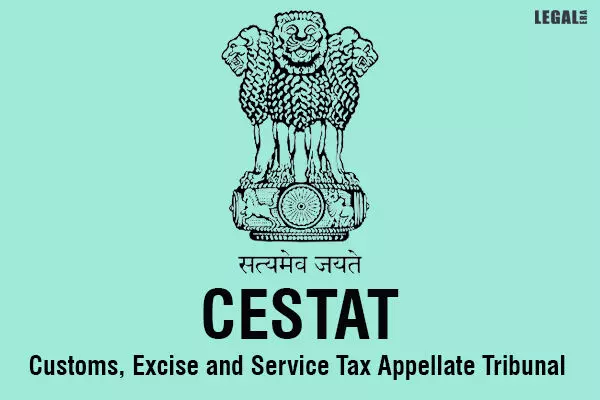- Home
- News
- Articles+
- Aerospace
- Artificial Intelligence
- Agriculture
- Alternate Dispute Resolution
- Arbitration & Mediation
- Banking and Finance
- Bankruptcy
- Book Review
- Bribery & Corruption
- Commercial Litigation
- Competition Law
- Conference Reports
- Consumer Products
- Contract
- Corporate Governance
- Corporate Law
- Covid-19
- Cryptocurrency
- Cybersecurity
- Data Protection
- Defence
- Digital Economy
- E-commerce
- Employment Law
- Energy and Natural Resources
- Entertainment and Sports Law
- Environmental Law
- Environmental, Social, and Governance
- Foreign Direct Investment
- Food and Beverage
- Gaming
- Health Care
- IBC Diaries
- In Focus
- Inclusion & Diversity
- Insurance Law
- Intellectual Property
- International Law
- IP & Tech Era
- Know the Law
- Labour Laws
- Law & Policy and Regulation
- Litigation
- Litigation Funding
- Manufacturing
- Mergers & Acquisitions
- NFTs
- Privacy
- Private Equity
- Project Finance
- Real Estate
- Risk and Compliance
- Student Corner
- Take On Board
- Tax
- Technology Media and Telecom
- Tributes
- Viewpoint
- Zoom In
- Law Firms
- In-House
- Rankings
- E-Magazine
- Legal Era TV
- Events
- Middle East
- Africa
- News
- Articles
- Aerospace
- Artificial Intelligence
- Agriculture
- Alternate Dispute Resolution
- Arbitration & Mediation
- Banking and Finance
- Bankruptcy
- Book Review
- Bribery & Corruption
- Commercial Litigation
- Competition Law
- Conference Reports
- Consumer Products
- Contract
- Corporate Governance
- Corporate Law
- Covid-19
- Cryptocurrency
- Cybersecurity
- Data Protection
- Defence
- Digital Economy
- E-commerce
- Employment Law
- Energy and Natural Resources
- Entertainment and Sports Law
- Environmental Law
- Environmental, Social, and Governance
- Foreign Direct Investment
- Food and Beverage
- Gaming
- Health Care
- IBC Diaries
- In Focus
- Inclusion & Diversity
- Insurance Law
- Intellectual Property
- International Law
- IP & Tech Era
- Know the Law
- Labour Laws
- Law & Policy and Regulation
- Litigation
- Litigation Funding
- Manufacturing
- Mergers & Acquisitions
- NFTs
- Privacy
- Private Equity
- Project Finance
- Real Estate
- Risk and Compliance
- Student Corner
- Take On Board
- Tax
- Technology Media and Telecom
- Tributes
- Viewpoint
- Zoom In
- Law Firms
- In-House
- Rankings
- E-Magazine
- Legal Era TV
- Events
- Middle East
- Africa
CESTAT exempts Ford India from Service Tax on Warranty Plans Prior to July 2012

CESTAT exempts Ford India from Service Tax on Warranty Plans Prior to July 2012
Notes that the demand in the income tax department’s order was from 1 May 2011 to 30 June 2012, thus it was not applicable
The Chennai bench of the Customs, Excise and Service Tax Appellate Tribunal has provided respite to the appellant, asserting that it was not obligated to pay service tax on a range of services, including factory warranties, optional extended warranties, scheduled plans, and total maintenance plans, offered to customers prior to 01 July 2012.
The appellant, Ford India Pvt. Ltd., a car manufacturer, sold cars to authorized dealers, who then sold them to end customers. An audit revealed that the appellant had provided factory warranties to customers for two years after the car sale, followed by optional extended warranties, scheduled plans, and total maintenance plans.
However, the Income Tax Department noted that the appellant was directly offering services to car buyers through these plans, while dealers were only selling the plans. It led to a Service Tax liability, as the appellant had not reported or paid service tax on the services in their income tax returns.
This omission was seen as an attempt to evade payment, triggering the proviso to Section 73(1) of the Finance Act, 1994. Consequently, a show-cause notice was issued, demanding service tax, along with interest under Section 75 and a penalty under Section 78 of the Finance Act.
The Coram of P. Dinesha (Judicial Member) and M. Ajit Kumar (Technical Member) observed that after the insertion of Section 65B (54) in the Finance Act, from 1 July 2012, the definition of ‘works contract’ was expanded to include repair and maintenance services of movable properties. Hence, the composite contracts for repair and maintenance of motor vehicles were leviable to service tax, thereafter.
The bench held that the demand in the impugned order was for the period from 1 May 2011 to 30 June 2012. Thus, these issues were no longer applicable.
The Tribunal, therefore, set aside the impugned order and allowed the appeal.



